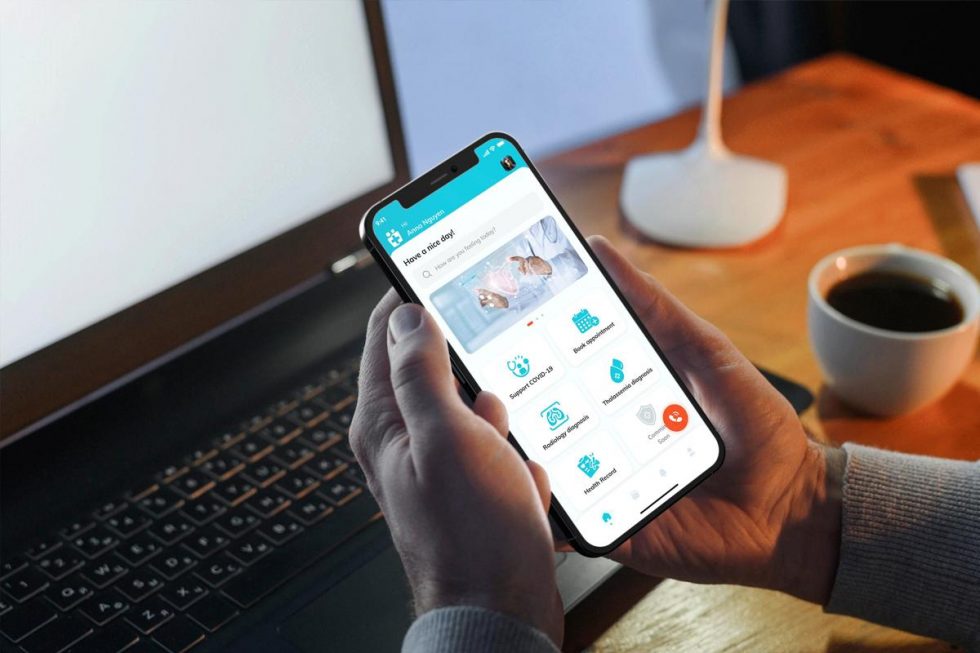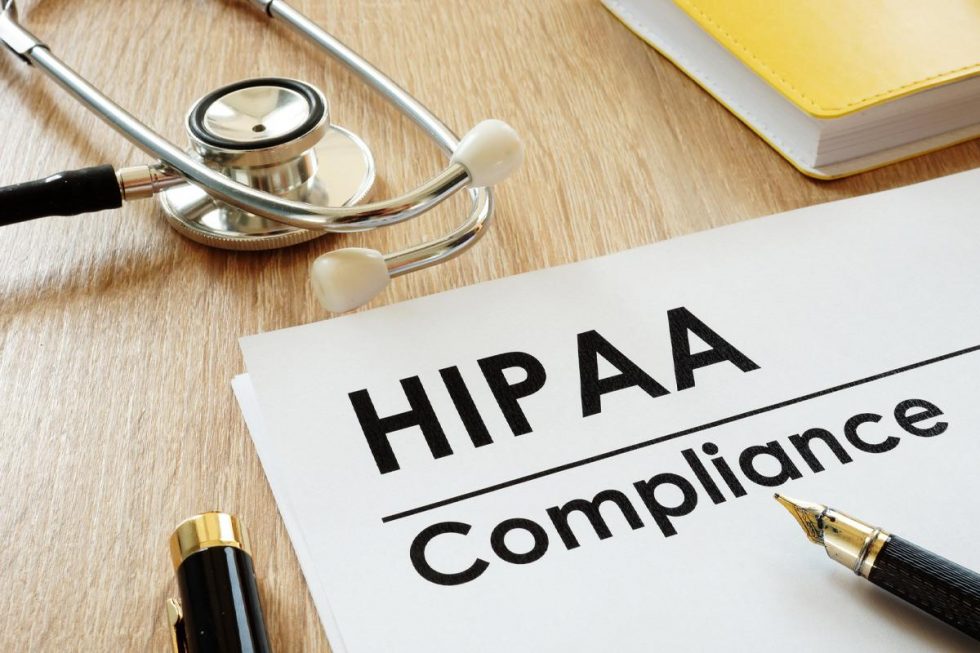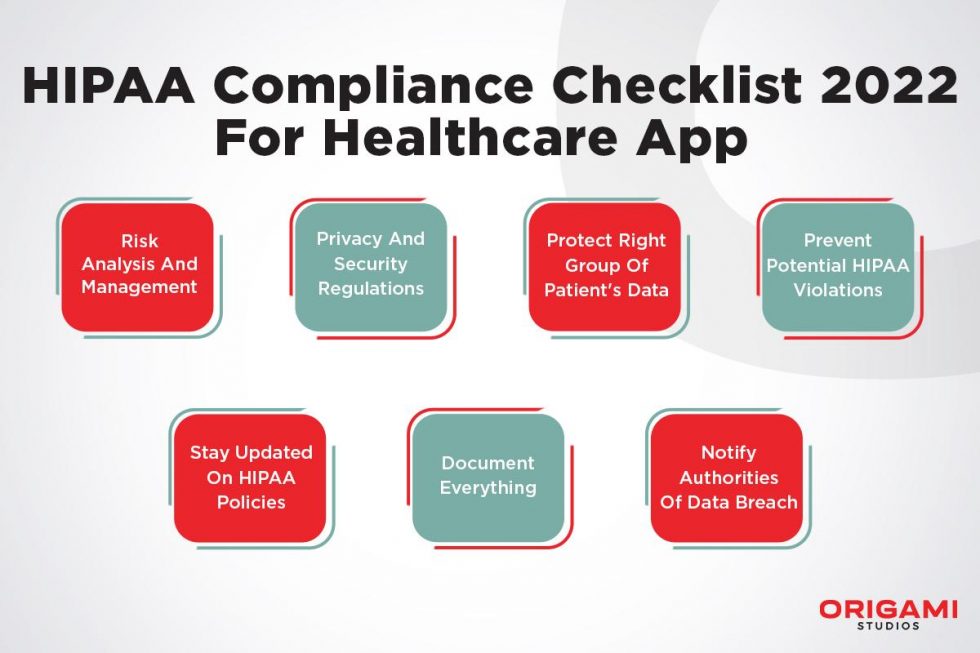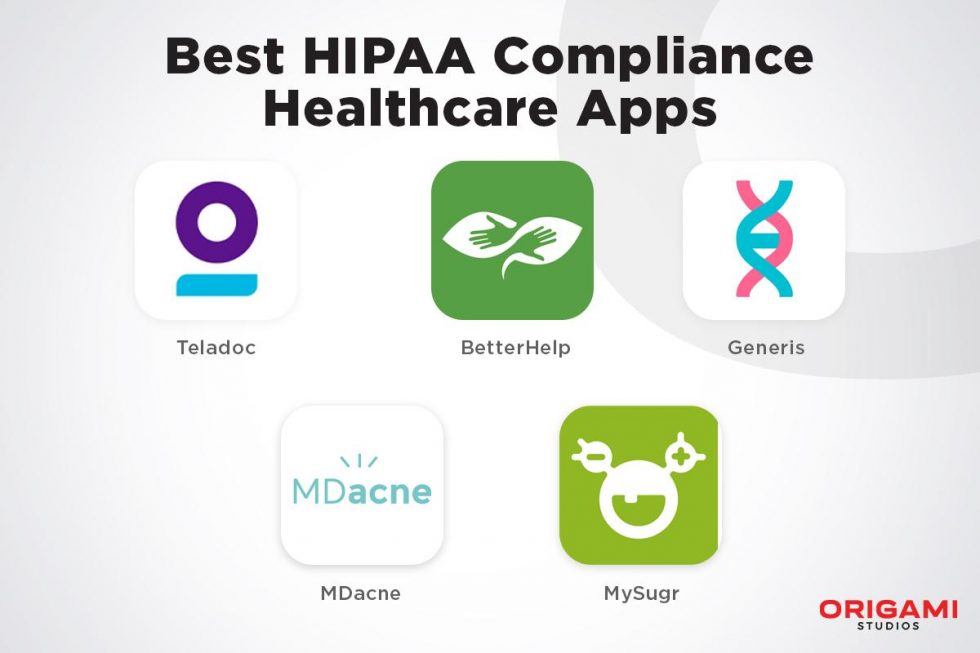Mobile applications are a big part of what we do in our routine – whether it’s food delivery apps or healthcare applications everything has become a facet of life either at the workplace or individual. Since the recent pandemic has overhauled the healthcare sector. Nowadays, everyone wants to have health services one step away.
The research intimates the United States mobile healthcare sector will exceed $50 billion by 2025. So, the healthcare sector is growing unexpectedly in the USA and worldwide. In recent years, mhealth apps have witnessed 30% of online data breaches on patient records. So, to prevent these record breaches your healthcare business applications should be HIPAA compliant.
The health insurance portability and accountability act should be included in the manual of your online e-Health app development. The HIPAA policies not only protect patients’ confidential medical records but also force businesses to abide by these rules. But, it’s also obligatory to apprehend what HIPAA is.

What is HIPAA Compliance?
The Health Insurance Portability and Accountability Act (HIPAA) of 1996 is a Health and Human Services act of the United States which modernized the flow of healthcare information. This act revolves around the protocols and procedures of how healthcare providers and insurance firms will maintain the patient’s records and use them for their business purposes.
For healthcare software suppliers it is requisite to oblige HIPAA rules and regulations. In addition, health and human services (HHS) also defined the penalties and sentences if healthcare developers do not enclose HIPAA compliance documentation properly in their applications. In general, there are two rules of thumb i.e. HIPAA privacy rule and the HIPAA security rule.

Healthcare Apps and HIPAA Compliance
The department of health and human services (HHS) has issued two rules. The first is the HIPAA privacy rule and the second one is the HIPAA security rule. Every telehealth application for online consultation and clinical apps is mandatory to abide by these rules.
Healthcare or insurance business apps are always HIPAA compliance software to maintain medical records, insurance policy management, and more. Now, let’s shed some light on the pillars of a HIPAA regulation law.
- The HIPAA Privacy Rule: According to HHS documentation, a healthcare application will be HIPAA privacy policy compliant if it has standards to protect certain information of the healthcare system. Moreover, your software development company should also be aware of these rules to implement during the healthcare app development process.
- The Security Rule: The rule focuses on the preservation of electronically protected health information. Under the HIPAA security regulations, everything distributed electronically will be protected.
To determine whether your newly developed software adheres to HIPAA guidelines or not. We have curated a checklist for your healthcare app. At the moment, it’s time to have a look at this detailed HIPAA compliance checklist to forge a holistic healthcare solution.
2022 HIPAA Compliance Checklist for Healthcare App
Although HIPAA compliance conditions are strict but straightforward for software development companies to understand and implement. The eHealth application should follow these regulations and become HIPAA-approved. Here, we’ve curated a HIPAA compliance checklist that you can obey parallel to your health solution development.

1. Risk Analysis and Management
One of the pillars of security rules defines all covered entities to fulfill risk analysis. It’ll assist in properly analyzing which entities should cover under risk analysis and how it will affect the implementation of the security rule. For a deeper understanding, we’ve listed a portion of influential points.
- The risk analysis will measure the potential threat to electronically protected health information.
- Bring out a state-of-the-art solution to a particular concern behind innovating invincibility.
- Maintain continuous but appropriate online application security measures.
- Document the system security measures and assist to adopt a strategy to overcome future risks.
The eHealth risk analysis forecasts healthcare app security threats while management brings a streamlined solution to tackle these threats. The privacy and security rules under the health insurance portability and accountability act also focus on confidentiality, integrity, and availability of confidential information.
2. Privacy And Security Regulations Under HIPAA
In 2023, it’s important to implement security and privacy regulations. As a healthcare app and eHealth software development company it’s imperative to obey security and privacy regulations under HIPAA. If a company will obey it means their every software solution is also fulfilling these basic requirements.
Thus, it’s salient to ensure creating, receiving, and maintaining data should be confidential in each segment of information delivery. In addition, it’s essential to anticipate data threads and implement some rules for data integrity in your company.
It’s also essential to certify compliance by the workforce. Consequently, privacy and security regulations enforce nothing but confidentiality, integrity, and availability of confidential information. It’s one of the important aspects to implement in your organization for a full-fledged HIPAA app development company.
3. Protect The Right Group of Patient’s Data
The next action item in your HIPAA compliance checklist is to protect the patient’s data. In simple words, data should be arranged, well managed, and protected. The HIPAA privacy rule focuses on “individually identifiable health information” stored information by covered entities in the form of papers or electronic devices should be organized.
This rule also defines the information should be arranged with time frame reference in the form of present and past checkups, medical conditions, and treatment types.
The rule also defines the information should be arranged with a time reference, medical checkups, patient condition, insurance covered policy, and unique identifiable payment methods. This includes the following patient details as listed but is not exclusively limited to.
- Name, apartment addresses, area/location
- Patient birthdates, death dates, treatment appointment calendars, and illness history.
- Patient social security or national identification number
- Contact information such as physical addresses, mobile numbers, telephone numbers, and email addresses.
- Patient treatment, and medicine calendars.
- Medical record number and body tests.
- Payment history and payment methods
- Some additional information according to the respective medical body.

4. Identify And Prevent Potential HIPAA Violations
HIPAA violations can occur in several ways intentionally or unintentionally. But, it’s critical to understand what violation is and how to take measures to prevent them. In most cases, the common violations occur due to internal negligence.
HIPAA-compliant software development is needed to identify and prevent potential violations. However, encrypted communication over your healthcare solution results in protected health information. You must also upgrade your software following changes to HIPAA rules.
5. Stay Updated on HIPAA Policies
HIPAA compliance can be challenging as technology is evolving. So, it’s required to stay associated with HIPAA frequent updates. Even though you have acquired HIPAA compliance at present, it’s still required to keep everything on track and update eHealth documentation.
6. Document Everything
An important segment of the 2023 HIPAA compliant checklist. It’s good practice to keep updating your application and documenting everything in parallel. For example, you have got a HIPAA-compliant application & implemented an internal security module that protects against data breaches to avoid PHI compromise. This module documentation will assist to track and notify law enforcement agencies about how compliant your eHealth solution is.

7. Notify Authorities of Data Breach
HIPAA breach notification rule– incorporate a procedure that enforces compromised healthcare software to notify individuals whose data has been compromised or lost. In addition, your software documentation should also contain a procedure to notify PHI authorities and law enforcement agencies.
HIPAA Useful Resources
Here we have compiled some resources to monitor and stay ahead of the game in your 2023 HIPAA compliance application. Moreover, one can also use these resources to notify respective authorities of policy violations.
- Health IT Security
- HIPAA Journal
- Official Health and Human Services CSC HIPAA
- American Medical Association Under HIPAA
- Center for Disease Control and Prevention
Now, I think you have a deep understanding of what HIPAA compliance is and how you can validate your healthcare solution by comparing the aforementioned HIPAA compliance checklist. In the United States, there are more than 10,000 mobile healthcare applications. But some of them are truly following HIPAA. I have shortlisted some of them for your reference.
Best HIPAA Compliance Healthcare Apps

- Teladoc – Telemedicine Mobile App: Teladoc is among the top-rated telemedicine and online doctor consultation eHealth mobile apps. Teladoc team has specifically mentioned in its privacy policy that they do not collect any information about visitors and its secured platform for online visitors. Hence, it means that they are strictly following HIPAA compliance.
- BetterHelp – Counseling App: BetterHelp is also regarded as a huge mental health online service provider in the United States. As they mentioned in their application documentation. BetterHelp collects information about its visitors for advertisement purposes only.
- Generis – Nutrition App: Generis is a health nutrition application that aims to cure diet-related queries by using DNA testing. According to their privacy policy, Generis does not collect and keep any information about their clients. Furthermore, their application is deployed on a secured platform.
- MDacne – Skin Acne Treatment App: MDacne is San Francisco-based skin care health app that aims to target skin diseased patients. As cited in their privacy policy and terms web resources. MDacne does not collect patients’ information and follows HIPAA compliance general rules on data privacy and security.
- MySugr – Diabetes Tracking App: MySur sells diabetic-related services for diabetic diseased patients. They elaborated on application privacy and security in detail. According to MySugr, they respect user privacy and do not allow any party to access data except Google which uses it for targeted advertising purposes.
It takes a lot of time and effort to create a healthcare application like Teladoc or BetterHelp, which also rigorously adhere to HIPAA. But an experienced development partner makes it simple and easy to achieve.
How Origami Studios Implement HIPAA Compliance?
At Origami Studios, we’re a pioneer leader for healthcare solutions who are striving for excellence. We’ve been developing healthcare solutions for a decade and none of our solutions has ever breached or violated HIPAA rules on data privacy. Our cybersecurity experts keep everything in consideration during system audits after finalizing a healthcare solution by our expert software engineers.
We’re specialized in healthcare to innovate intelligent mobile as well as web applications. Origami Studios helped 32+ startups to grow and build 1000+ online applications for 5 out of 500 fortune companies. We developed state-of-the-art mobile applications in recent years.
Our Together mobile application gained 20,000+ downloads in just a few weeks on Google Play with a 5-star rating. Are you still confused? But want a HIPAA-compliant app? No worries! Our team is here 24/7. Get your free project evaluation and check our recent case studies.